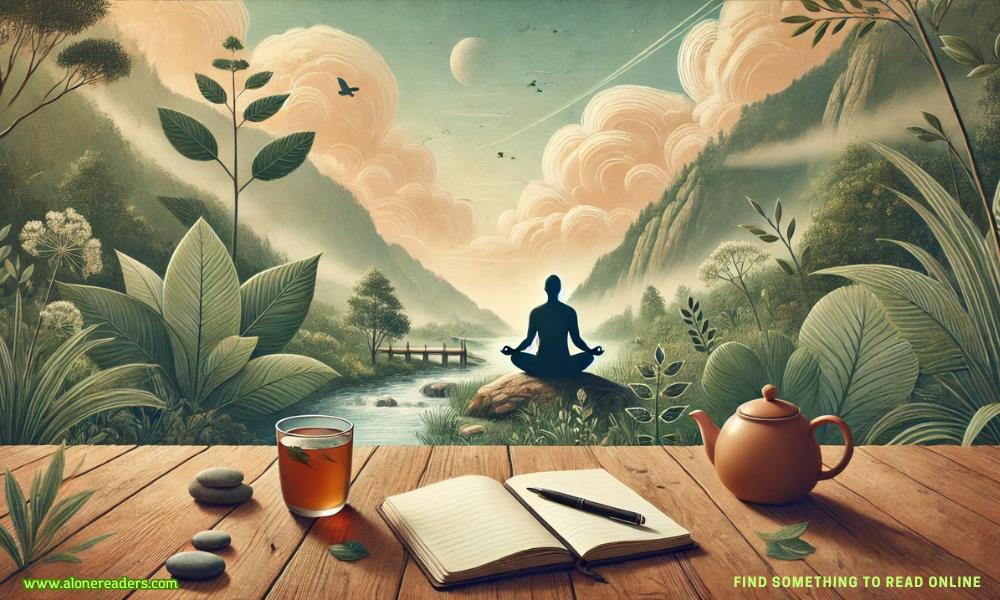Page 38 of Until Forever Falls
My legs are stiff when I shift forward, muscles locked in quiet rebellion. The first step feels impossible—like the moment before cliff diving—but Brooks doesn’t waver. His hand rests lightly on the doorframe—not pushing, not rushing, just waiting.
Inside, muted chatter fills the air, pressing in with the scent of fried bacon and fresh coffee. But the lights cut through it all, casting long shadows on the wood-paneled walls. Everything here feels like it’s been paused in time, stubbornly resisting the years. The aging photos hung haphazardly along the walls catch my attention, their worn borders framing moments I can’t forget, no matter how hard I try.
One photo stops me—a shot of Cape Mercy Lighthouse. A figure leans against the railing, silhouetted against the vast ocean, the sun glinting off the waves below. The familiarity doesn’t settle—it writhes, like a trapped insect under glass. Air stalls in my throat as the reason clicks into place. The photographer captured not just the lighthouse, but a moment I never thought would be shared. Salt-laced air lifts my hair, the water stretching endlessly toward the horizon—like standing on the edge of a moment that no longer belongs solely to me.
Brooks had said photography could hold time still, that it could turn a fleeting feeling into something permanent. Looking at this photo now, I understandexactlywhat he meant.
“Let’s grab a seat,” Brooks says, pulling my attention from his photo on the wall.
I follow him, easing onto the stool as it wobbles beneath me. The menu stares back, its words bleeding together the longer I try to focus, my mind grasping for something—anything—solid.
Brooks lifts a hand in greeting, catching the attention of the woman behind the counter. “Morning, Brooks. Didn’t expect to see you before Sunday.”
“Dylan, this is Nadine,” Brooks says, tipping his head slightly toward her—a motion that feels instinctive, like muscle memory. Like the two of them have shared a thousand conversations at this very counter.
“Now there’s a name I’ve heard more than a few times.”
“And here I thought I was flying under the radar.”
She chuckles softly, her energy radiant in a way that makes it hard to hold onto my defenses. “Oh, you were. Until Ruby opened her mouth. Let me take a guess—coffee to start?”
I exhale quietly relieved by the shift to something mundane. “Yeah, that sounds perfect, thanks.”
She steps away to grab a pot, and I let my gaze wander around the diner, taking in the worn booths and chipped checkered tiles, trying to find something new.
Ruby Miller appears from the kitchen, her copper-red hair perfectly styled in silky waves that match her presence. The remnants of yesterday’s awkward encounter dissolves in an instant, replaced with a comfort that feels like home.
“Dylan! Sweetheart, Nadine just told me you wandered in,” she says, her voice brimming with its natural sparkle. “And Brooks—well, there you are. I knew you two would end up back here together soon enough.”
“Morning, Ms. Miller.”
She waves a hand, dismissing any formality before planting herself in front of us with a no-nonsense look. “Okay, here’s the deal. You two are ordering whatever you want this morning. It’s on me, got it?”
“That’s too much, Ruby. We can’t let you do that.”
Her playful tone carries over as she winks. “Oh, I’m not joking, babydoll. It’s not every day we have a little reunion here. Consider it my treat. You both deserve it.”
“Ruby, seriously. I’m the one who dragged Dylan out this morning. I’ve got it covered,” Brooks counters.
Ruby flicks an imaginary speck of dust off her sleeve before sending a mock-accusatory point his way. “Oh no, sugar, this isn’t for you. It’s for her.”
Nadine chuckles from her spot behind the counter as she brings over our coffee. “You’ll lose this argument, Brooks. You know first hand Ruby is as stubborn as they come. Just let her have her way.”
Brooks lets out a resigned groan, tilting his head slightly. “Fine, you win. But you know I’m ordering half the menu now, right?”
“I always win, babydoll. Go on ahead. I won’t regret a thing. But let’s not kid ourselves, you’ll be ordering the same pancakes you always do.”
True to form, Brooks orders the same pancakes he’s sworn by since we were younger. I, on the other hand, opt for strawberry waffles, though my appetite flickers in and out like a faulty light. Ruby stays close, keeping the conversation light like a well-timed distraction from the tension that might take root once we’re alone.
The conversation flows easily, like it always does when we’re together. There’s no rush to fill every pause, but somehow we’re always talking. It’s comforting, like slipping into a pair of shoes you’ve had forever. And then, New York comes up.
I start talking without even realizing it, telling them about my move there after finishing my art degree. I think I’ve said it a thousand times before, but it feels different now. I moved there because I craved invisibility—because the city had a way of blending people into the masses. I liked that. I liked being just another face in the crowd, where nobody cared if I was there or not. It was like I could finally be myself without anyone noticing.
Then, I start to tell them how I met Aaron—except I hesitate, his name catching in my throat. Brooks stays still, but his shoulders pull back, a barely-there shift that speaks volumes. I tread carefully, choosing my words like stepping stones across a river, mindful of every placement.
“We connected over art,” I say, testing the waters, eyes flicking to his, tracking his reaction like a second heartbeat. “Eventually, he convinced me to come work for him.” The words feel heavier now.
I push forward, filling the silence further before it can stretch too long, explaining how stepping into Chelsea Art Haus felt like entering a different world—a symphony of bold colors and kinetic art, everything demanding attention. It’s not the quiet life I thought I wanted, but it’s predictable. And these days, predictable feels like a win.
- The Sheik's Embrace by Elizabeth Lennox
- Sofa King Cute by Alexa Riley
- Family Bonds- Garrett & Justine by Natalie Ann
- Stolen Dreams by Natasha Madison
- Vendetta Crown by Brook Wilder
- Vendetta Vows by Brook Wilder
- Born into Darkness by Sonja Grey
- His Virgin Wife by Sam Crescent
- The Princess and the Pack by Fallon English
- Revival by A.M. Wilson
- Reclaimed by A.M. Wilson
- Atonement by Evelyn Montgomery
- Some Like It Royal by Heather Long
- Protected By Saint by Cassi Hart
- Getting Lucky in London by Darah Lace
- A Man of Power by S.E. Rose







